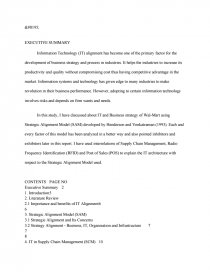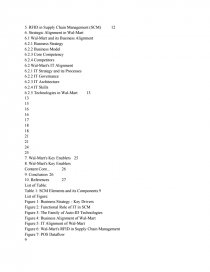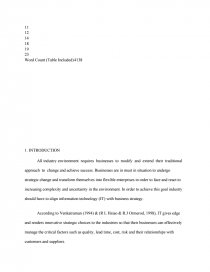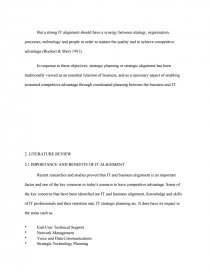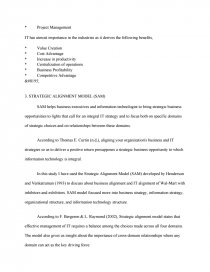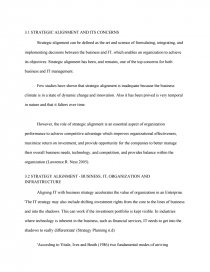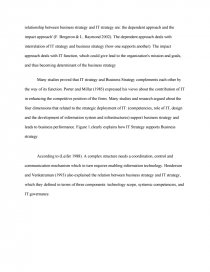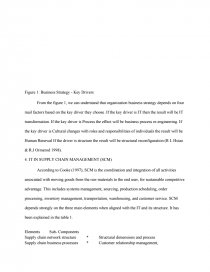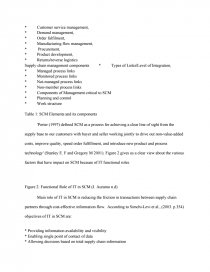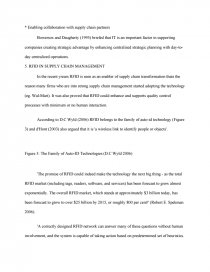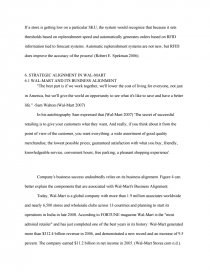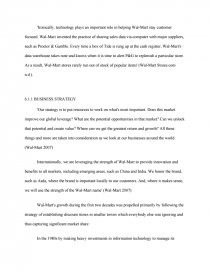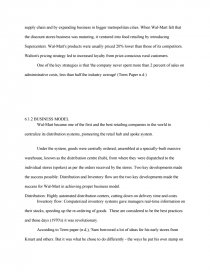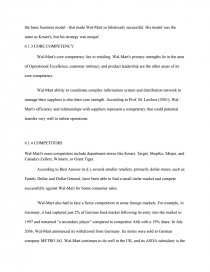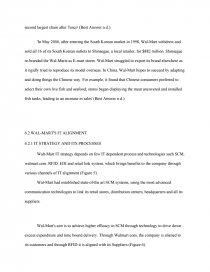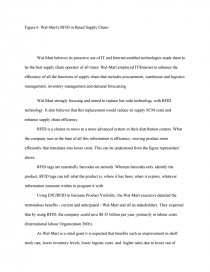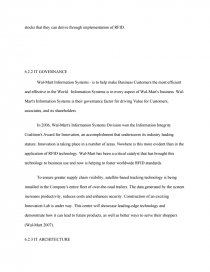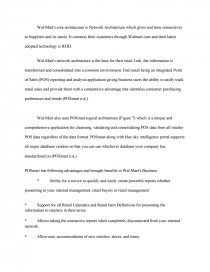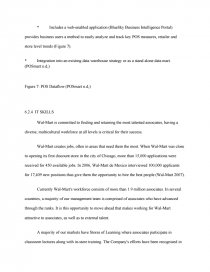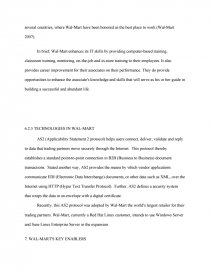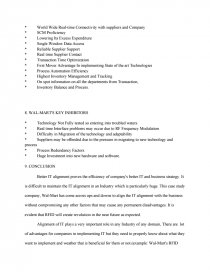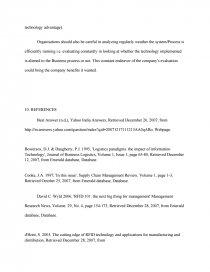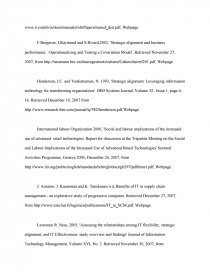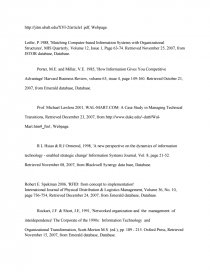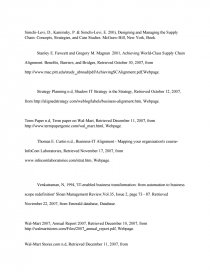Mis Assignment
Essay by 24 • June 15, 2011 • 4,924 Words (20 Pages) • 1,227 Views
Essay Preview: Mis Assignment
 
EXECUTIVE SUMMARY
Information Technology (IT) alignment has become one of the primary factor for the development of business strategy and process in industries. It helps the industries to increase its productivity and quality without compromising cost thus having competitive advantage in the market. Information systems and technology has given edge to many industries to make revolution in their business performance. However, adopting to certain information technology involves risks and depends on firm wants and needs.
In this study, I have discussed about IT and Business strategy of Wal-Mart using Strategic Alignment Model (SAM) developed by Henderson and Venkatraman (1993). Each and every factor of this model has been analyzed in a better way and also pointed inhibitors and exhibitors later in this report. I have used interrelations of Supply Chain Management, Radio Frequency Identification (RFID) and Post of Sales (POS) to explain the IT architecture with respect to the Strategic Alignment Model used.
CONTENTS PAGE NO
Executive Summary 2
1. Introduction 5
2. Literature Review
2.1 Importance and benefits of IT Alignment 6
6
3. Strategic Alignment Model (SAM)
3.1 Strategic Alignment and Its Concerns
3.2 Strategy Alignment - Business, IT, Organization and Infrastructure 7
7
8
4. IT in Supply Chain Management (SCM) 10
5. RFID in Supply Chain Management (SCM) 12
6. Strategic Alignment in Wal-Mart
6.1 Wal-Mart and its Business Alignment
6.2.1 Business Strategy
6.2.2 Business Model
6.2.3 Core Competency
6.2.4 Competitors
6.2 Wal-Mart's IT Alignment
6.2.1 IT Strategy and its Processes
6.2.2 IT Governance
6.2.3 IT Architecture
6.2.4 IT Skills
6.2.5 Technologies in Wal-Mart 13
13
15
16
16
17
18
18
21
21
24
25
7. Wal-Mart's Key Enablers 25
8. Wal-Mart's Key Enablers
Content Cont... 26
9. Conclusion 26
10. References 27
List of Table:
Table 1: SCM Elements and its Components 9
List of Figure:
Figure 1: Business Strategy - Key Drivers
Figure 2: Functional Role of IT in SCM
Figure 3: The Family of Auto-ID Technologies
Figure 4: Business Alignment of Wal-Mart
Figure 5: IT Alignment of Wal-Mart
Figure 6: Wal-Mart's RFID in Supply Chain Management
Figure 7: POS Dataflow
9
11
12
14
18
19
23
Word Count (Table Included) 4138
1. INTRODUCTION
All industry environment requires businesses to modify and extend their traditional approach to change and achieve success. Businesses are in must in situation to undergo strategic change and transform themselves into flexible enterprises in order to face and react to increasing complexity and uncertainty in the environment. In order to achieve this goal industry should have to align information technology (IT) with business strategy.
According to Venkatraman (1994) & (R L Hsiao & R.J Ormerod, 1998), IT gives edge and renders innovative strategic choices to the industries so that their businesses can effectively manage the critical factors such as quality, lead time, cost, risk and their relationships with customers and suppliers.
But a strong IT alignment should have a synergy between strategy, organization, processes, technology and people in order to sustain the quality and to achieve competitive advantage (Rockart & Short 1991).
In response to these objectives, strategic planning or strategic alignment has been traditionally viewed as an essential function of business, and as a necessary aspect of enabling sustained competitive advantage through coordinated planning between the business and IT.
2. LITERATURE REVIEW
2.1 IMPORTANCE AND BENEFITS OF IT ALIGNMENT
Recent researches and studies proved that IT and business alignment is an important factor and one of the key concerns in today's scenario to have competitive advantage. Some of the key concerns that have been identified are IT and business alignment, Knowledge and skills of IT professionals and their retention rate, IT strategic planning etc. It does have its impact in the areas such as,
* End-User Technical Support
* Network
...
...
